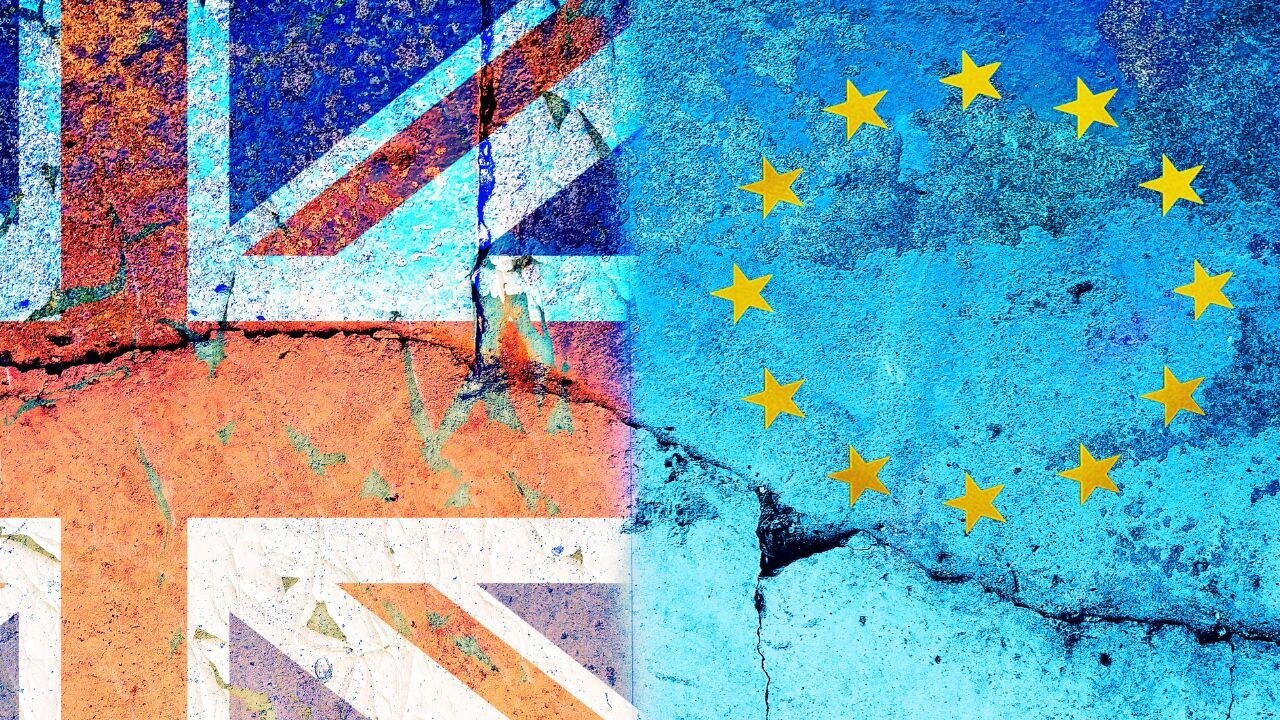
The UK launched a formal appeal against its exclusion from the EU’s science programs in August — and, on Monday, called on the bloc to regrant it access again.
The British government says that participation in Horizon Europe, the EU’s flagship program — which funds research, nuclear regulator Euratom, and the Copernicus satellite monitoring group — was outlined in the post-Brexit trade deal. Since then, the UK claims it has been blocked out.
The UK’s exit agreement with the EU allows it to take part in Horizon Europe, as long as it also contributes to the program’s funding.
But according to the European Commission, the UK’s status in the program won’t be confirmed until the impasse over the Northern Ireland Protocol is resolved.
The protocol is a special agreement that essentially keeps Northern Ireland in the EU’s single market and customs union, to avoid a hard border between Northern Ireland — which is part of the UK — and the Republic of Ireland, which is an EU member state.
Politicizing international collaboration
At the UK-EU Parliamentary Partnership Assembly held on Monday and Tuesday, the Minister for Europe Leo Docherty said:
“We will all benefit from the UK’s participation and it brings no conceivable disadvantage to the EU or its member states, but the EU has politicized scientific cooperation by linking it with the Northern Ireland Protocol.”
He continued: “Putting politics in the way of scientific collaboration constrains human potential and hurts everybody.”

Although Maroš Šefčovič — the European Commission Vice President — noted that the EU and the UK could do more together, including research, he stated that essential parts of the mutually negotiated and agreed-upon terms aren’t being respected.
This comes after the British government’s move to pass legislation that could override the Northern Ireland Protocol. The bill is reaching its final stages in the House of Lords this week, but hasn’t been passed as law yet.
Nevertheless, Šefčovič said that the EU isn’t seeking “a political victory,” but just aims to “solve the problem.”
“I believe it could be done if there is political will; I’m sure that we can sort it out really within a couple of weeks because both sides of our negotiating teams, we know these topics from all angles,” he added.
In the meantime, the UK isn’t keen on waiting for access to Horizon Europe. As per Doherty, “The UK’s participation would be a clear win-win for the UK and the EU, but the UK cannot wait much longer. The EU’s approach is causing intolerable uncertainty for our research and business communities.”
As a matter of fact, Britain signed on Thursday a science collaboration agreement with Switzerland, which has also been kept out of the Horizon program.
A division of scientific collaboration is bad for Europe as a whole
We spoke with a variety of experts about the impact this division between UK and European Union scientists could have. Nadeem Gabbani — founder of Exobotics, a UK-based satellite company — told us that “scientific collaboration is hugely important and beneficial for all involved.” He believes that the combination of “some of the best minds across the world” in Europe and the UK could help deliver “new scientific and technological advances.”
As an example of the importance of cross-border collaboration, Gabbani mentioned the European Space Agency, which has worked with a large number of startups and SMEs, both from the UK and the EU.
“We have subsequently, helped by this funding and support, seen benefits such as a 6.7% growth in jobs in the UK space industry, and an annual turnover increasing to £6.5bn in 2021,” he explained.

The Joint European Torus experimental nuclear fusion reactor, housed in the UK and largely funded through Horizon is another example.
According to David Hammond, Partner at HLK Chemistry & Life Sciences Team, it “epitomizes” how international cooperation can benefit society as a whole.
But beyond academic research, Hammond notes, Horizon has funded numerous collaborations between UK and EU companies. This program has helped tackle “real world problems that each business could not hope to solve on its own.”
These types of collaborations not only benefit the EU by tapping into the UK’s scientific community, but also enable businesses themselves to thrive and grow, Hammond adds.
And if we take a step further and try to look at the big picture, multinational partnerships are key to combating the most pressing global issues.
One company doing this is M Squared Lasers, a UK-based company specializing in quantum and photonics technology. Its CEO — Dr Graeme Malcolm, OBE — told us it works with “several EU partners to develop systems to support the capture of data on polluting gasses like CO2 and methane.” This is then used to improve the collective fight against global warming.
Stressing the need to put politics aside and resume the EU’s and UK’s science collaboration, Malcolm adds: “Crucially, it is by championing cooperation — rather than competition — that we will maximize our success in tackling the climate emergency.”
And this is the key. Stopping scientific collaboration is the sort of petty points scoring that has long-term consequences. Taking something as important as research — which not only impacts startups and businesses, but potential world-saving technologies — and turning it into a political tool is in no one’s best interests.
Let’s hope this matter is resolved quickly, and Europe’s best minds can work together again.
Get the TNW newsletter
Get the most important tech news in your inbox each week.




